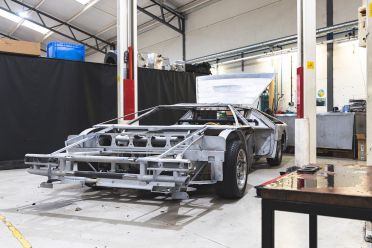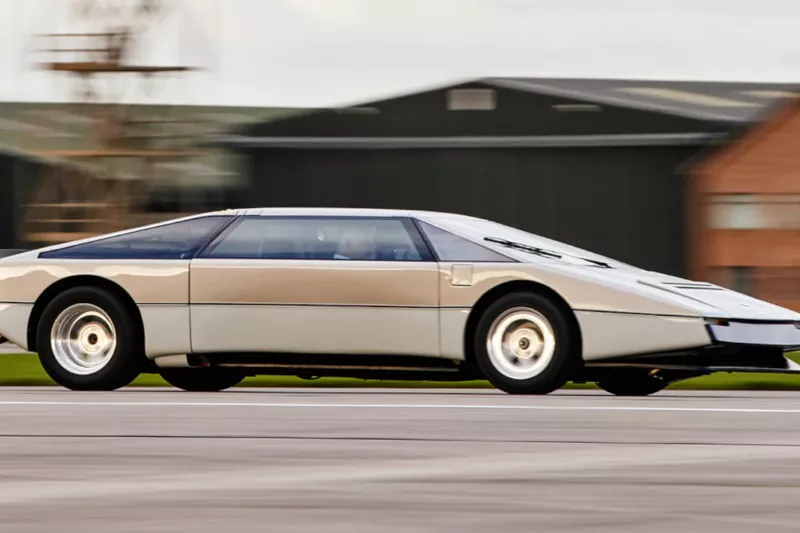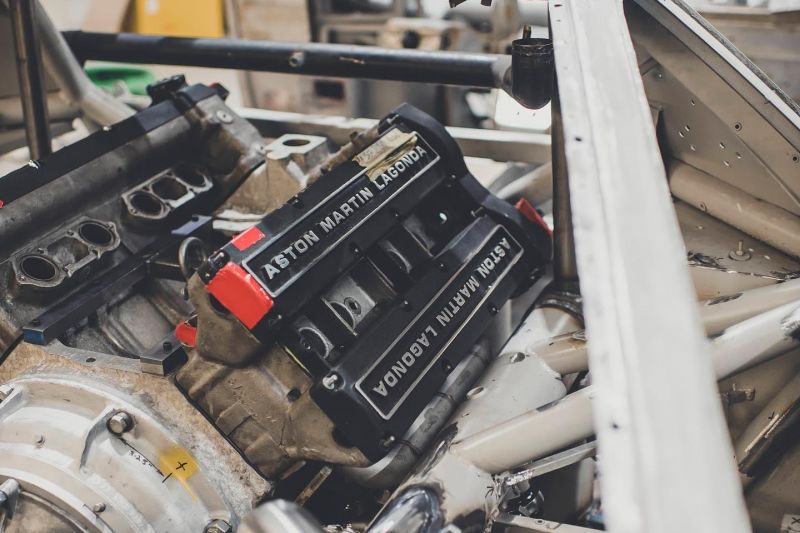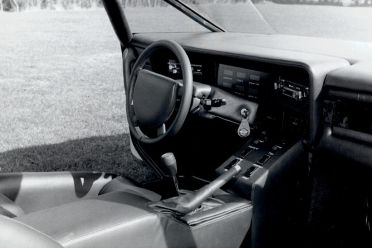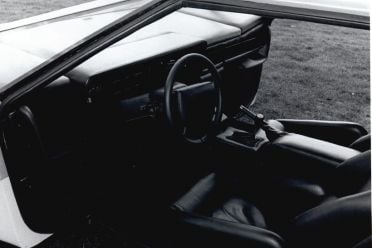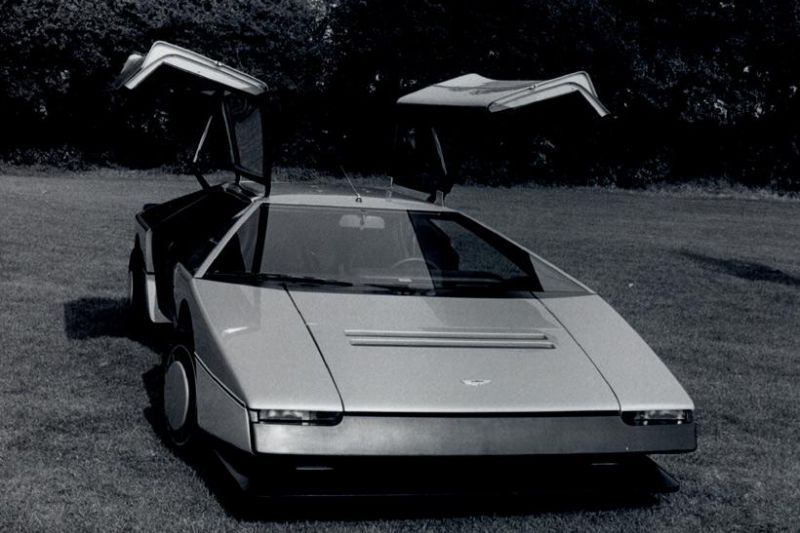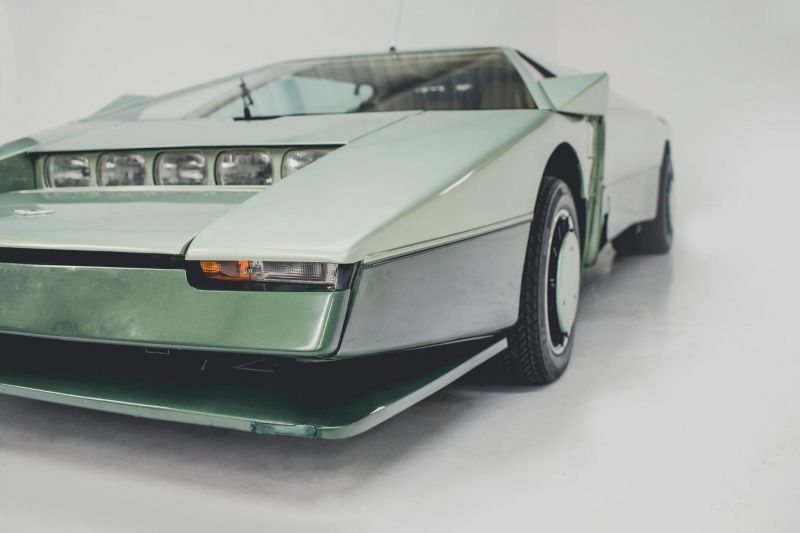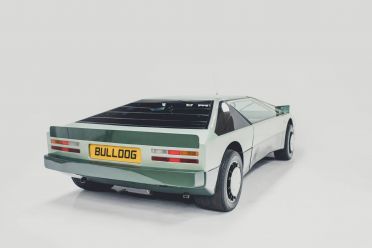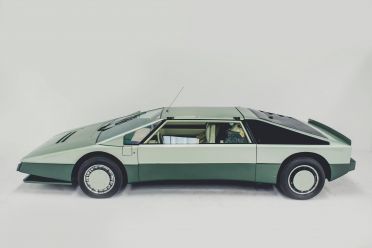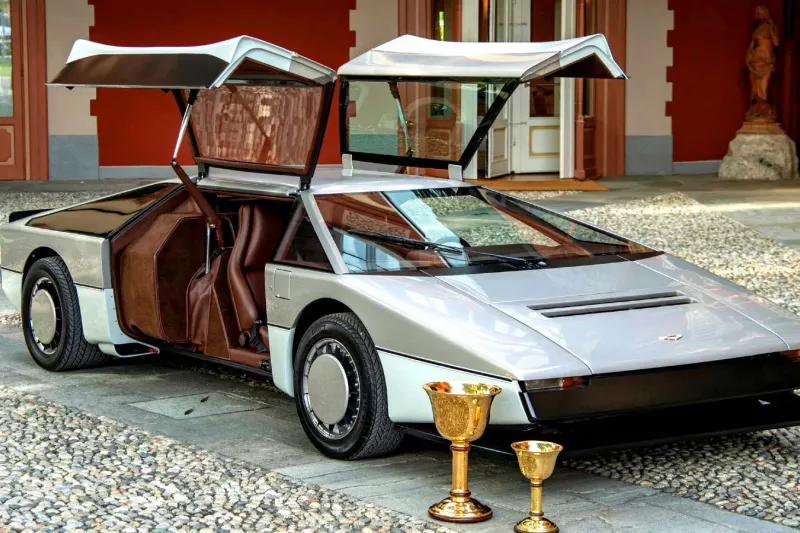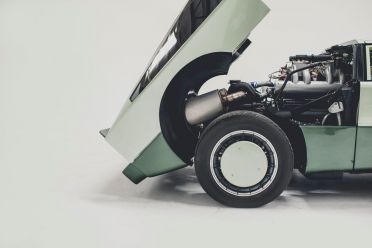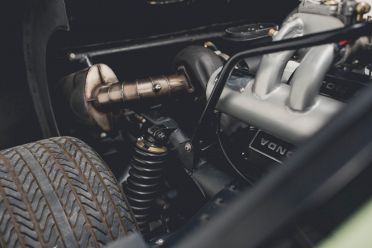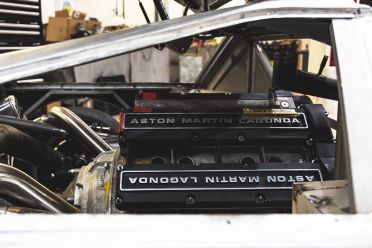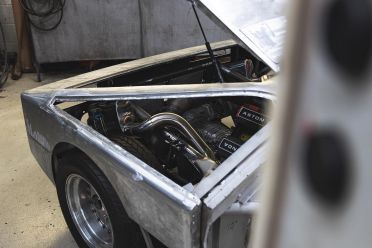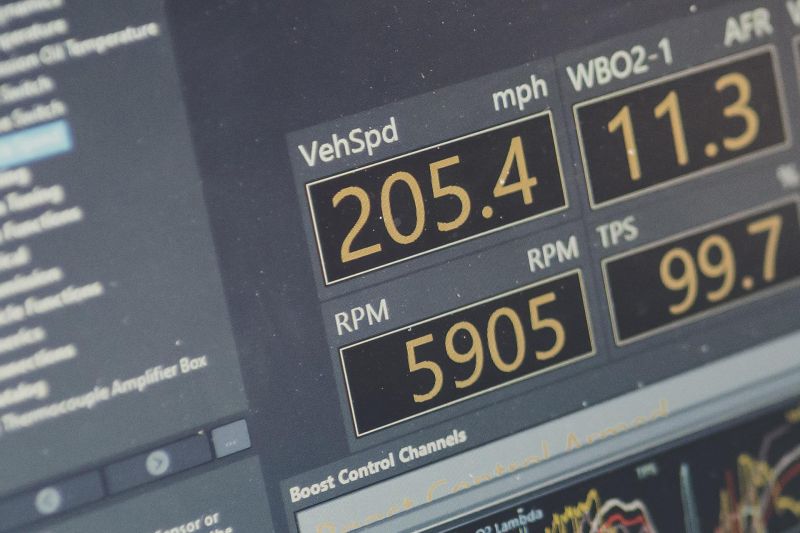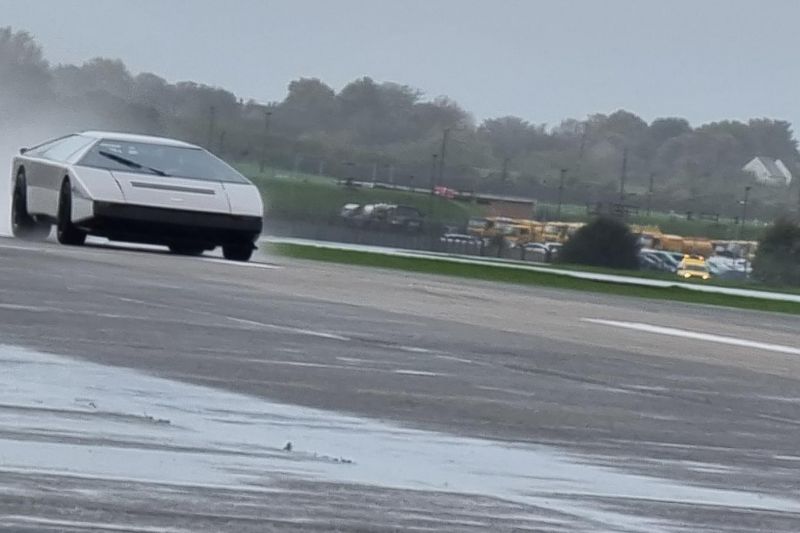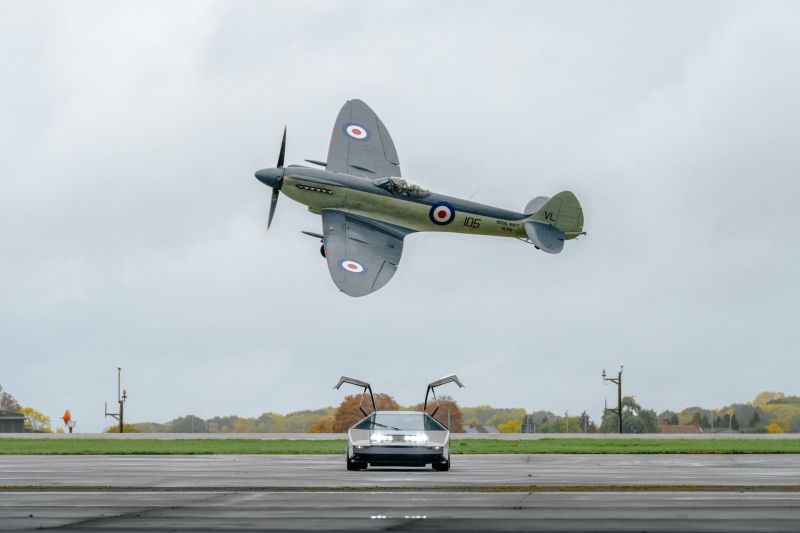Concept cars often captivate with their stunning looks and crazy specs on paper, only to fade into oblivion after a brief stint at car shows, and wind up in pieces at some random scrap yard years later.
Thankfully, that fate was not in store for one exceptionally cool-looking Aston Martin.
Meet the ‘Bulldog’, a blast from the past that would be at home in any James Bond flick.
This wild looking supercar has come back from the dead (at a very impressive 200mph), thanks to the determination of one individual who dared to revive a 45-year-old concept car.
Originally designed in the late 1970s, the Aston Martin Bulldog was poised to show off British automotive engineering.
The ambitious project aimed to create the fastest production car of the time, with a sleek design and nearly double the power of any other supercar of the day – a mammoth 700hp.
Specifications:
- Engine: 5.3-litre twin-turbo Aston Martin V8
- Power: 650-700hp, 485-522kW
- Weight: 1510kg (3229lb)
- Drive layout: Mid-engine, rear-wheel drive (MR)
- Top speed target: 237mph
Back in 1977, the British automaker embarked on a daring mission with the Bulldog. The goal was to design a production car capable of eclipsing the world record for fastest car, with a proposed top speed of 237mph (381km/h).
At a time where most supercars struggled to surpass the 180 mph (290 km/h) barrier, the proposed record was insane.
To put that massive power and claimed top speed into perspective, these were the top three fastest production cars of the era:
- Lamborghini Countach LP400: 179mph (288km/h).
- Ferrari Berlinetta Boxer: 188 mph (303km/h)
- Porsche 911 Turbo (930): 155mph (250km/h)
Despite the impressive design and wild specs, the Bulldog’s fate took an unfortunate turn. Financial troubles plagued Aston Martin in the early ’80s, resulting in the bean-counters calling for the project’s termination.
The Bulldog, unfortunately, would never never make it to market.
It wasn’t until recent years the Bulldog’s story was reignited by Phillip Sarofim, after he somehow managed to acquire the prototype.
Phillip commissioned Classic Motor Cars to restore this one-of-a-kind prototype – and in a strange twist, the project leader happened to be the son of the man who initially canceled the Bulldog project.
Bringing a 44-year-old concept car up to modern standards was no small feat. Classic Motor Cars had to reproduce or reimagine several components since they were never mass-manufactured by Aston Martin.
Additionally, the team had to balance the desire to reach the top speed goal with ensuring the car’s safety, as pushing a vintage vehicle to 200mph is no easy task.
While sifting through pictures of the restoration process, once can’t help but to be amazed at the incredible amount of work the team had to put in, to go from a rough concept one-off concept vehicle, to a concourse condition show car.
Take a moment to appreciate the well and truly ahead-of-its-time chassis design and integrated roll cage!
After years of work, the Aston took to the runway at the Machrihanish Airfield in Scotland, with 200mph in its sights. While the Bulldog fell short of its original predicted top speed of 237mph, the team reached an impressive 205.4mph (330km/h).
“What a day! 205.4 MPH we did it!!!!! A huge round of congratulations to all the Bulldog Team,”
Classic Motor Cars Unlimited shared the news of the Bulldog’s triumph on Facebook.
The project not only restored the car to its former glory but also honoured its original vision of surpassing the 200mph mark, still an impressive figure even for modern sports cars.
“After thousands of hours of restoration and preparation by the team at Classic Motor Cars Limited. The 40-year-plus wait is over for this car to achieve its original vision, it has happened today on a runway in Scotland. What a car, what a team!
It might have taken 45 years for the Bulldog to go from 0-200mph, but it’s a damn site better than ending fate than the majority of concept cars.
For more information on the project, you can follow the build here, at Classic Motor Cars Limited.

